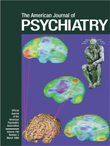This is a comprehensive bibliography on the subject of the title for the years 1945–1995, intended for scholars of the Holocaust. The bibliography covers journal articles, books, and dissertations on the psychology and mental health of Holocaust survivors and their children; it also covers writings on human medical experimentation in Germany during the years 1933 through 1945. It includes writings in more than 10 languages.
This book constitutes the fourth volume of Genocide: A Critical Bibliographic Review, an award-winning series of volumes of annotated citations edited by Dr. Israel Charny, executive director of the Institute on the Holocaust and Genocide in Jerusalem. Marc Sherman, co-editor of this volume, is the associate editor of the series and an information specialist. Robert Krell, the other editor, is a Canadian psychiatrist, professor emeritus at the University of British Columbia. From 1942 to 1945, Dr. Krell was a hidden child in The Hague, sheltered and protected by a family of righteous Gentiles. He has devoted his professional career to listening to, collecting, and memorializing the testimony of Holocaust survivors.
The book is dedicated to Prof. Leo Eitinger, a Norwegian psychiatrist who died in October 1996, shortly before the book was published. Dr. Eitinger was a Jewish medical doctor in Czechoslovakia when that country was invaded in 1939. He fled to Norway but was caught and deported to Auschwitz, where he served as a prisoner doctor. One of his patients there, Elie Wiesel, writes the foreword to this book. Among its 2,461 citations, the bibliography lists Dr. Eitinger’s 55 articles and books on the Holocaust, spanning the years 1945 through 1994. In 1979–1980, with Miriam Rieck, he compiled the first research bibliography on psychological consequences of the Holocaust. In 1985, he and Dr. Krell published an updated version; the present book is a further update.
Of great interest in this bibliography are voluminous writings from behind the Iron Curtain, primarily from Polish medical journals. To most North American psychiatrists, this work is totally unknown. The U.S. literature on the subject has been dominated by writings from a psychoanalytic perspective, but attempts to grasp the Holocaust experience from within this framework have largely failed. As Dr. Krell underscores in his two introductory essays and his annotations to selected references, it was not early vulnerabilities but, rather, the magnitude of the torture, loss, terror, humiliation, and dehumanization that determined post-Holocaust mental health. The amazing resilience and fortitude of child survivors remains unexplained.
Holocaust studies today are undergoing fresh fervor and controversy. There are Holocaust deniers and Holocaust appropriators. There are ongoing debates on the meaning of survival, on the nature of evil, on the potential for acts of heroism in the face of hopelessness. There is the continuing quest for understanding. Who was responsible? Was it the whole German nation or only the Nazi party? What should German physicians have done? What should Jewish capos have done? What could the victims themselves have done? Why did the international community stand by and do nothing? What about the international Jewish community? What does it mean to be a “neutral” state in the face of neighboring massacre and atrocity? What turns human beings into mass murderers?
This book will not answer these questions but will certainly help in their continuing exploration.

